Did you start cooking only to realize your recipe calls for sherry vinegar and you don’t have any? This might not be such a big issue. These sherry vinegar substitutes can save your dish in a pinch!

Depending on what’s available in your pantry, or nearby grocery stores, you can use another vinegar alternative with a similar taste profile or even a non-vinegar option. We’re covering both, so keep reading!
What Is Sherry Vinegar?
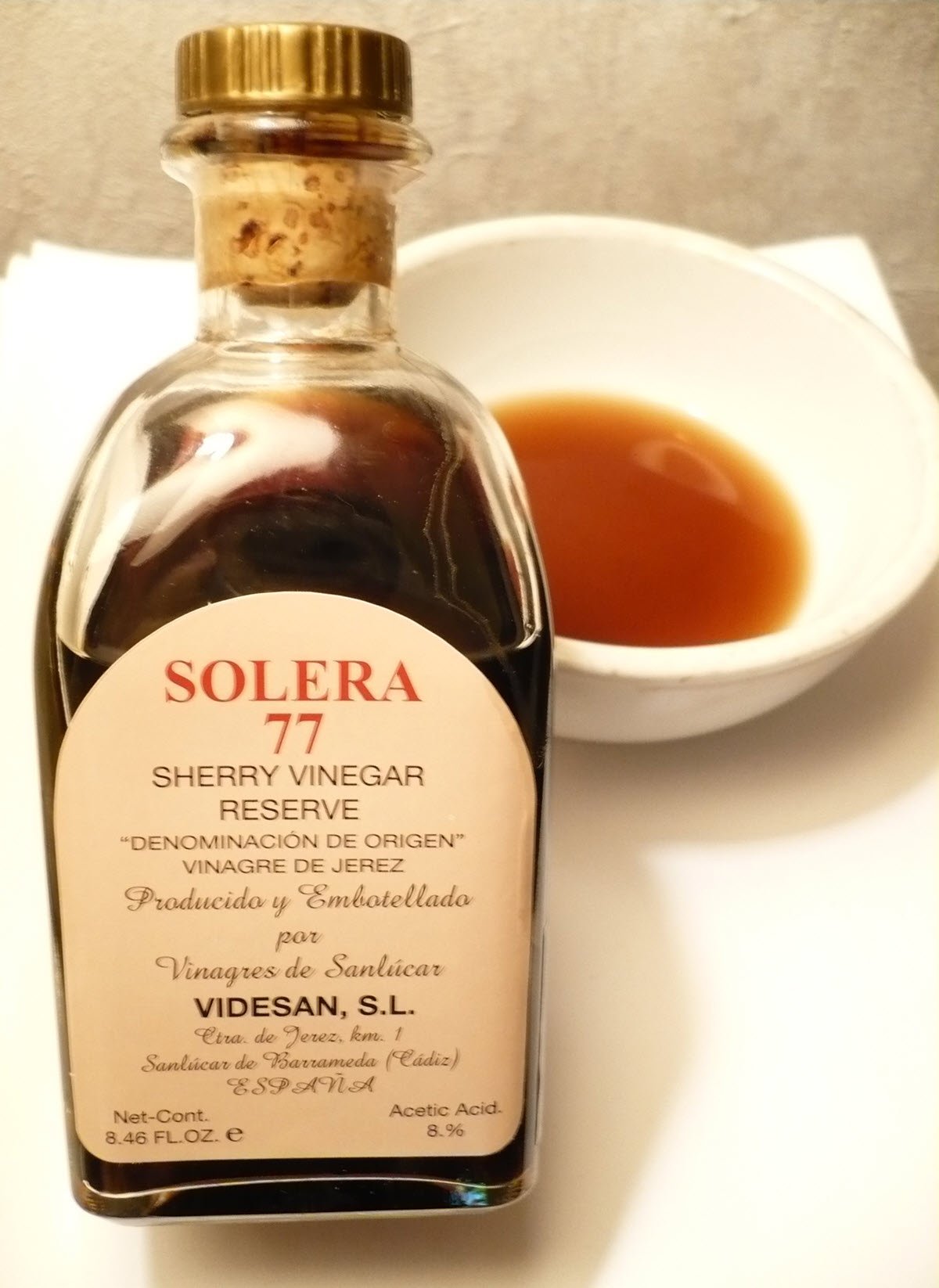
Sherry vinegar is made from sherry wine and both are produced only in Southern Spain.
Moscatel and Pedro Ximenez grape varieties are used to make sherry wine and vinegar since Ancient Rome and French chefs were the ones that discovered its culinary value.
This type of vinegar can be aged for up to 20 years which can develop a complex bouquet of flavors that makes a wonderful addition to many recipes requiring acidity.
What Does Sherry Vinegar Taste Like?
Since it is vinegar, it’s tangy but not as intense as other vinegar varieties like red or white vinegar.
Sherry vinegar also has a subtle sweetness and mild nutty and caramel flavors. The more this vinegar is aged, the richer the taste it develops.
Best Substitutes
Sherry vinegar can be replaced in recipes with other types of vinegar, although there are also non-vinegar alternatives.
We’ll discuss all of them so you’ll have plenty of options to choose from. When deciding on a substitute, consider the other ingredients in your recipe and what’s readily available. Hopefully, you’ll find the perfect replacement in the list below!
| Substitute | Ratio (Substitute: Sherry Vinegar) | Notes |
|---|---|---|
| Champagne Vinegar | 1:1 | Optionally add a bit of sugar to balance the overall sweetness of the dish. |
| Rice Vinegar | 1:1 | – |
| Apple Cider Vinegar | 1:2 | Add more only if needed. Optionally, add a pinch of sugar. |
| Fruit Vinegar | 1:4 -1:2 | Add more only if needed. |
| Red Wine Vinegar | 1:4 -1:2 | Add a little sugar or honey. |
| White Wine Vinegar | 1:2 -1:1 | Add a little sugar or honey. |
| Balsamic Vinegar | 1:1 | Suitable for rich dishes, sauces, salad dressings, and marinades. |
| Coconut Vinegar | 1:1 | – |
| Distilled White Vinegar | 1:4 – 1:2 | Add a little sugar or honey. |
| Herb Vinegar | 1:2 – 1:1 | – |
| Malt Vinegar | 1:1 | – |
| Citrus Fruit Juice | 1:2 – 1:1 | Add a little sugar or honey. |
| Sherry Wine | 1:2 – 1:1 | Add a small amount of apple cider vinegar or white vinegar. |
Vinegar-Based Substitutes
Champagne Vinegar
Thanks to its mild flavor profile and subtle sweetness, champagne vinegar is one of the best substitutes for sherry vinegar.
Compared to sherry vinegar, champagne vinegar is a little less sweet but the light, floral aroma makes it safe to use as a replacement in a 1:1 ratio. Rest assured it won’t overpower the other ingredients in your recipe.
Feel free to add more if needed, and you can increase the sweetness of your dish with a little sugar or honey.
Rice Vinegar
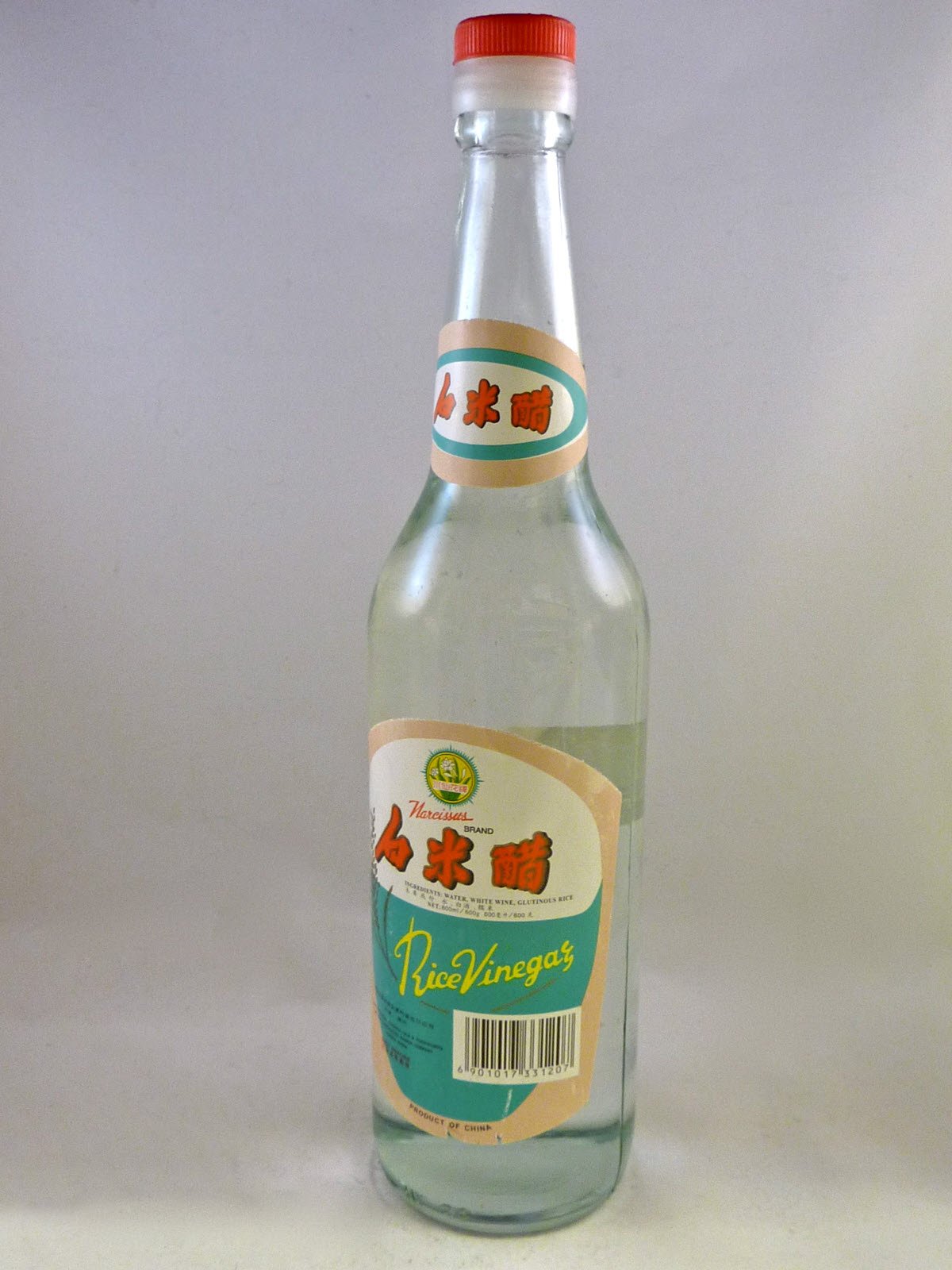
A common ingredient in Asian cuisine, rice vinegar, also known as rice wine vinegar is made by fermenting white, brown, red, or black rice.
It has a sweet, mild flavor that goes well with meat, rice, and veggie-based dishes but also in stir-fries, marinades, vinaigrettes, and dipping sauces.
One of my favorite ways to use it in vinaigrettes for salads and roasted or air-fried veggies like this super easy air fryer broccolini.
Rice vinegar is similar to sherry vinegar in both sweetness and acidity, so you can use it as a substitute in a 1:1 ratio.
Apple Cider Vinegar

The tanginess and light, fruity flavor of apple cider vinegar make it a suitable replacement for sherry vinegar.
I often use it as a salad dressing ingredient and for dipping sauces. Even this simple tomato cucumber salad gets an incredible flavor boost from the addition of apple cider vinegar!
Its aroma profile is less complex and it has a higher acidity level so it must be used cautiously to not overpower the other flavors in your dish.
It’s best to add only half the amount the recipe requires, do a taste test, and add more only if needed. Sherry vinegar is sweeter than apple cider vinegar and you can balance your dish by adding a small amount of sugar.
Fruit Vinegar

Like apple cider vinegar is made from apples, there are other types of fruit vinegar.
They are made using a variety of fruits such as citrus fruits, peaches, berries, plum, mango, and papaya.
You’ll probably have a harder time finding them compared to apple cider vinegar. Still, they can make a great substitute, especially if you already have one on hand.
Fruit vinegar goes well in salad dressings, dipping sauces, and marinades.
I recommend you taste your fruit vinegar before using it. Depending on the fruit it’s made of, it can have different levels of sweetness and acidity.
Start by adding 1/4 to 1/2 of the amount called for, taste the food, and add more if you think it needs more acidity.
Red Wine Vinegar

As one of the most acidic and less sweet types of vinegar, red wine vinegar might not be the closest substitute for sherry vinegar but it is easy to find and a pantry staple for many people.
It’s a wonderful addition to meat-based dishes like these amazing Instant Pot ribs, as well as veggie-rich recipes such as my healthy vegetarian wild harvest rice.
Despite the differences, red wine vinegar works as an alternative to sherry vinegar.
Be mindful of how much you add to your recipe, though! Start with 1/4 to 1/2 of the required amount and don’t add more before doing a taste test.
As I already mentioned this vinegar lacks sweetness. This means you might need to add a small amount of sugar, honey, or another sweetener to your dish.
White Wine Vinegar
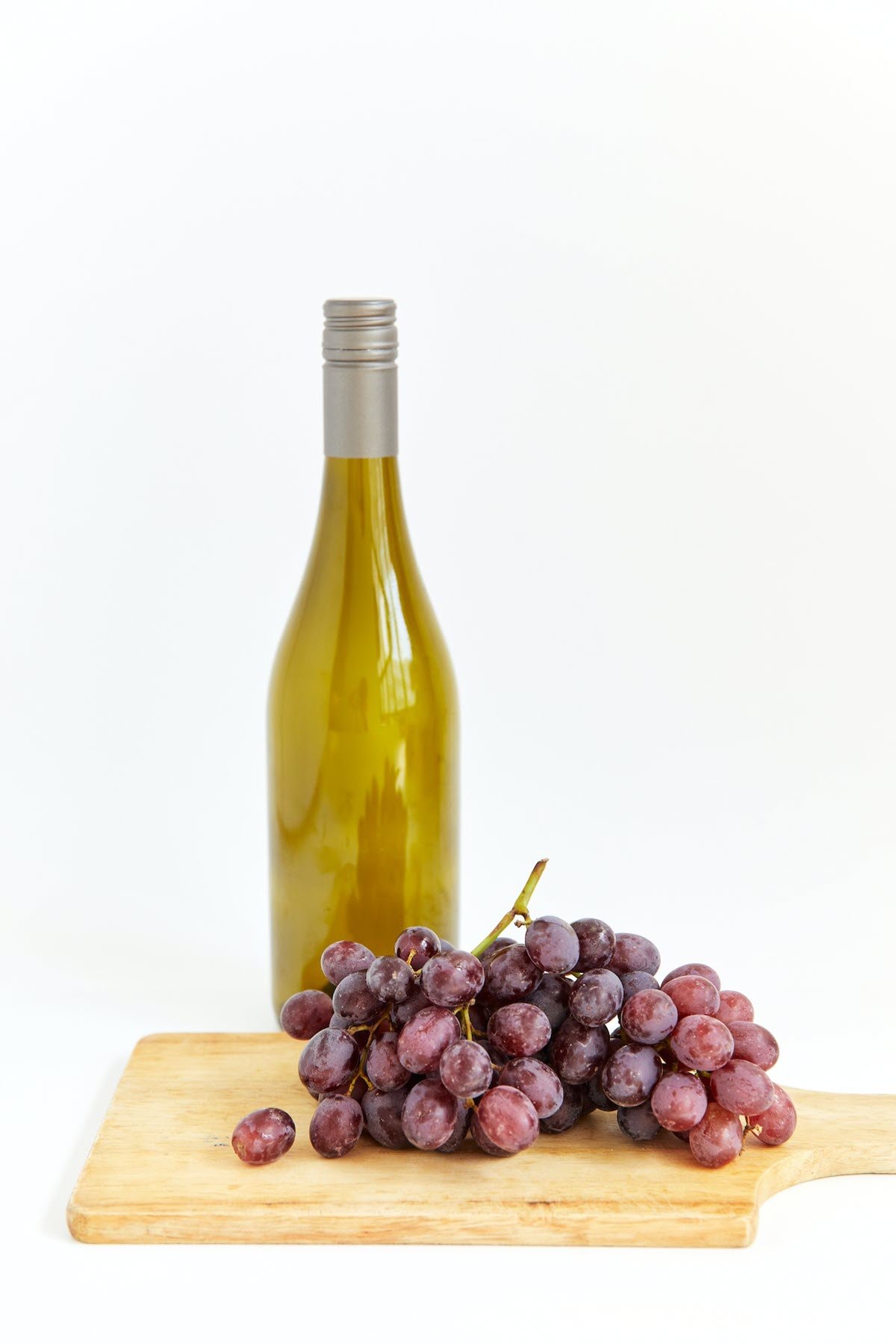
Similar to red wine vinegar, the white variety has a higher acidity and less sweetness than sherry vinegar.
White wine vinegar may lack the complex bouquet of sherry vinegar but it can make an excellent substitute for many recipes.
To not overpower your dish start with 1/2 the amount called by the recipe and add a little sugar to compensate for the lack of sweetness.
Tip: Looking for a white wine vinegar substitute? Read our guide to find a suitable alternative!
Balsamic Vinegar
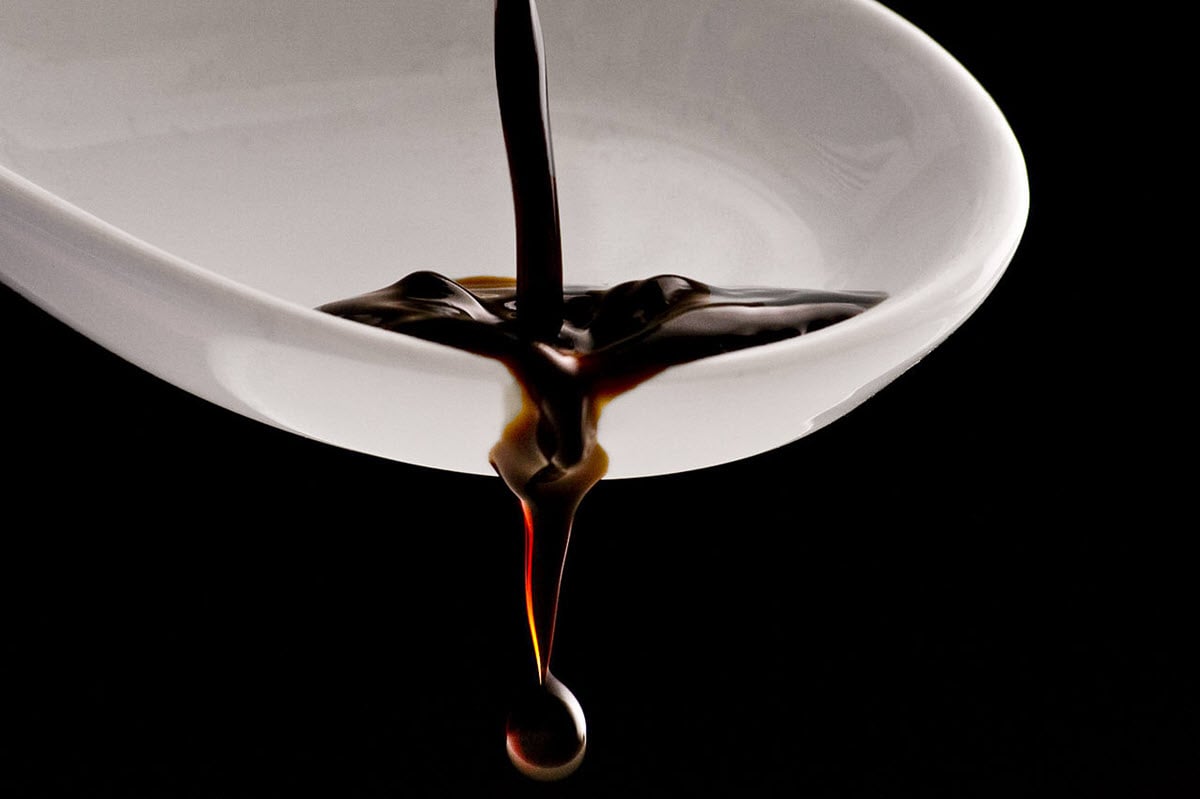
There are different types of balsamic vinegar so its flavor profile can vary although it will always be rich and complex. That combined with similar levels of sweetness and acidity make it an excellent substitute for sherry vinegar.
For culinary uses, the main difference between balsamic vinegar and sherry vinegar is the consistency.
Balsamic vinegar is thicker so it’s best used in a 1:1 ratio for rich dishes, sauces, salad dressings, and marinades.
Looking for more ways to enjoy balsamic? Try it in this honey balsamic sheet pan chicken and veggies. It’s a lifesaver when you need food on the table fast!
Another way to taste the rich flavor of balsamic vinegar is to drizzle it over roasted veggies like this easy sheet pan roasted Brussels sprouts stalk.
Coconut Vinegar

Made from fermented coconut water and sometimes from the sap of the coconut tree, coconut vinegar is mildly acidic and sweet. The naturally fermented variety is very healthy and nutritious.
Don’t expect to taste any hints of actual coconut in this vinegar. Its balanced bouquet makes it similar to champagne vinegar.
If you can find it, coconut vinegar is a great replacement for sherry vinegar and you can use it in a 1:1 ratio.
Distilled White Vinegar

Distilled white vinegar is much more acidic compared to sherry vinegar so it’s not an ideal substitute.
The main advantage of this vinegar is it’s cheap and easy to find. If this is the only substitute you have on hand from this list, here’s how you can make it work.
Use 1/4 to 1/2 of what the recipe calls for and add some sugar or honey because white vinegar lacks the sweetness of sherry vinegar.
Herb Vinegar

Herb vinegar is vinegar infused with herbs, fruits, or spices. The flavor can be very different depending on the ingredients used to infuse this vinegar.
This vinegar is milder than plain white vinegar but it’s still a good idea to taste it before using it in place of sherry vinegar.
To decide if it’s a good substitute for your dish, consider the herbs used to make it since not all of them work for any recipe.
With that said, a 1:2 up to 1:1 ratio is suitable in most cases.
Malt Vinegar
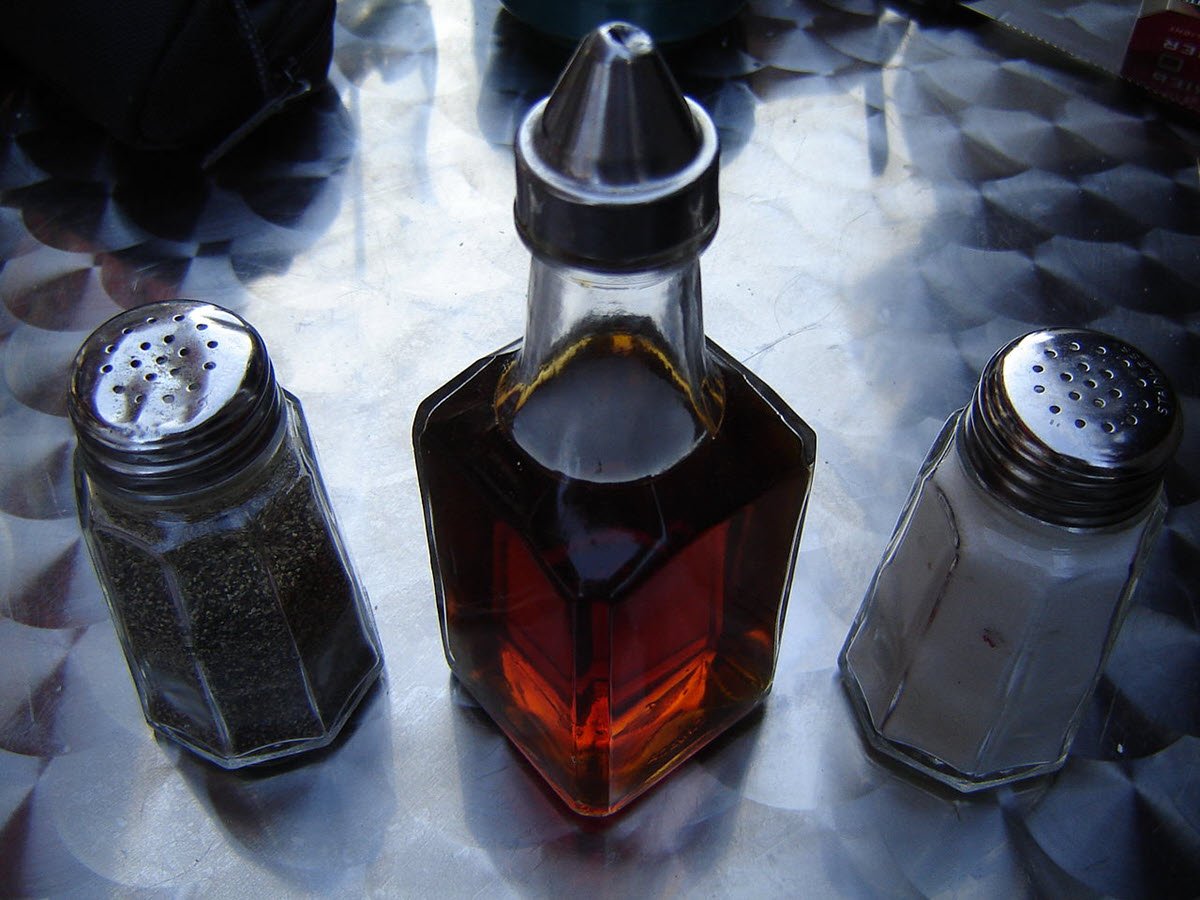
The pretty caramel color of this vinegar is given by the fermented barley it’s produced from.
Malt vinegar is sweet and mildly acidic with subtle nutty notes. Its bouquet is probably why it became a staple addition to the classic U.K. dish known as fish and chips.
While the flavor profile is not the same, it works great as a 1:1 substitute for sherry vinegar.
Non-Vinegar Substitutes For Sherry Vinegar
Citrus Fruit Juice

Citrus juice doesn’t taste like vinegar at all, yet it provides the acidity a dish calling for sherry vinegar needs.
Lemon and lime juice are the most obvious choices. Depending on the other ingredients in your recipe, other citrus fruits like grapefruits and oranges might also work.
As far as ratios go, citrus fruits can replace sherry vinegar in a 1:2 up to 1:1 ratio. For the tart ones like lemon and lime a pinch of sugar can help balance the flavors.
Sherry Wine
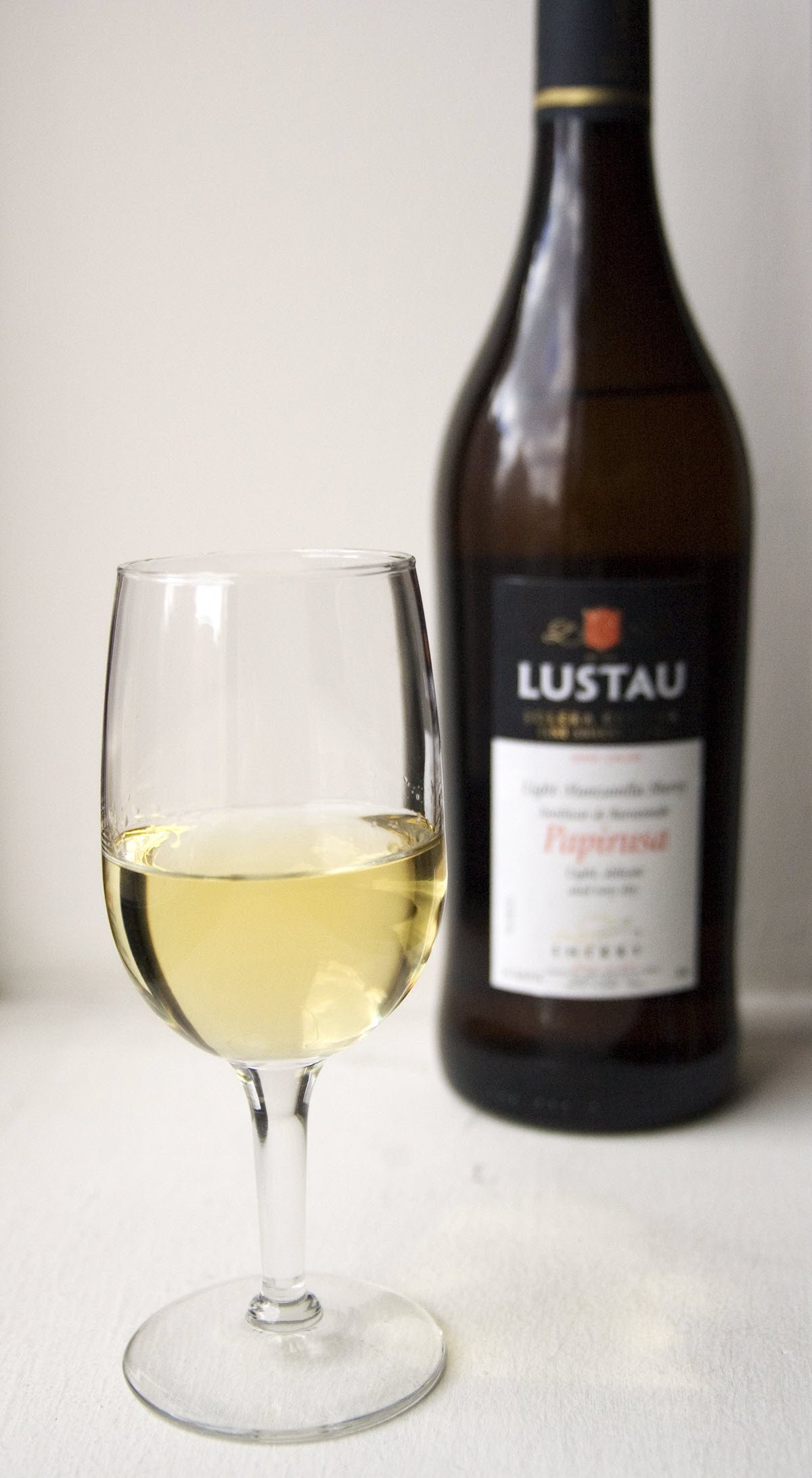
Since this is the fortified Spanish wine used to make sherry vinegar, which means if you use it as a substitute, you’ll get some of the original flavors.
One potential drawback is the alcohol content. This makes sherry wine a good substitute only in cooked dishes where the alcohol evaporates at least partially.
Another issue is the lack of acidity. To add more tartness to your dish, you might want to add a small amount of apple cider vinegar, or white vinegar.
It can be difficult to figure out the perfect ratio for this substitute since it’s wine, not vinegar. I recommend you start with 1/2 (or even less) of the amount called for and add more only if needed.
❓F.A.Q.
While made from sherry wine, sherry vinegar contains very little alcohol. If you or someone you’re cooking for can’t consume alcohol, the best non-alcoholic substitutes for sherry vinegar are apple cider vinegar and lemon or lime juice.
When making gazpacho, you can replace sherry vinegar with another vinegar that has similar sweetness and acidity. The best alternatives include champagne vinegar, rice vinegar, red wine vinegar, and malt vinegar.
Conclusion
I’m sure you have at least a few of these 13 sherry vinegar substitutes on hand to save that recipe. You might even discover a new and exciting flavor pairing!
Some of the best options include champagne vinegar, rice vinegar, coconut vinegar, and malt vinegar.
If you use acidic vinegar like white and red wine vinegar, white vinegar, and apple cider vinegar, you’ll likely need to balance the dish by adding a pinch of sugar or a drizzle of honey.
Sweeter vinegar such as fruit and herb vinegar will allow you to skip the sugar but they’re usually needed in lower amounts.
Related Posts
Hi!
Ginny Collins is a passionate foodie and recipe creator of Savor and Savvy and Kitchenlaughter. Indoors she focuses on easy, quick recipes for busy families and kitchen basics. Outdoors, she focuses on backyard grilling and smoking to bring family and friends together. She is a lifelong learner who is always taking cooking classes on her travels overseas and stateside. Her work has been featured on MSN, Parade, Fox News, Yahoo, Cosmopolitan, Elle, and many local news outlets. She lives in Florida where you will find her outside on the water in her kayak, riding her bike on trails, and planning her next overseas adventure.








Leave a Reply